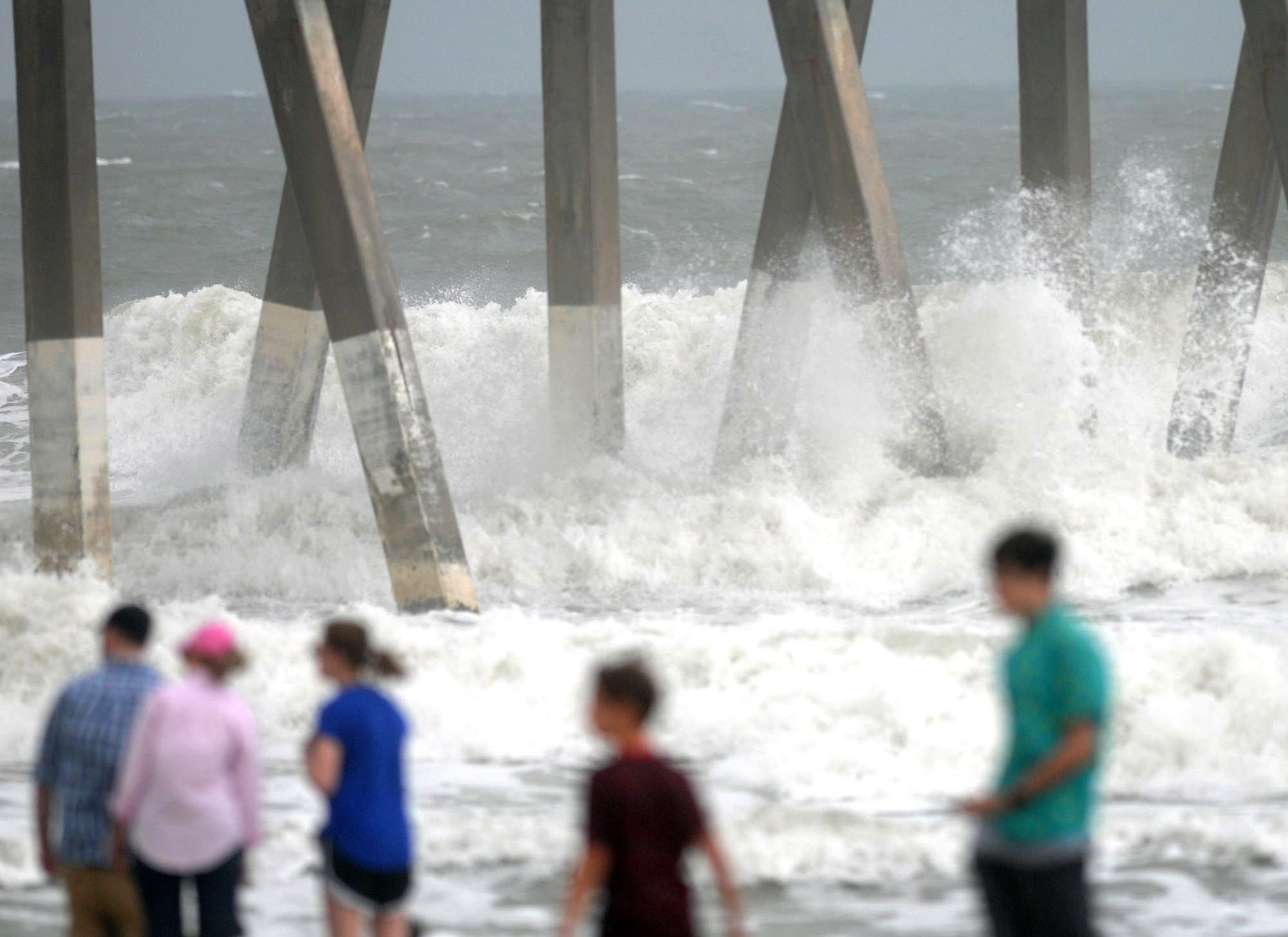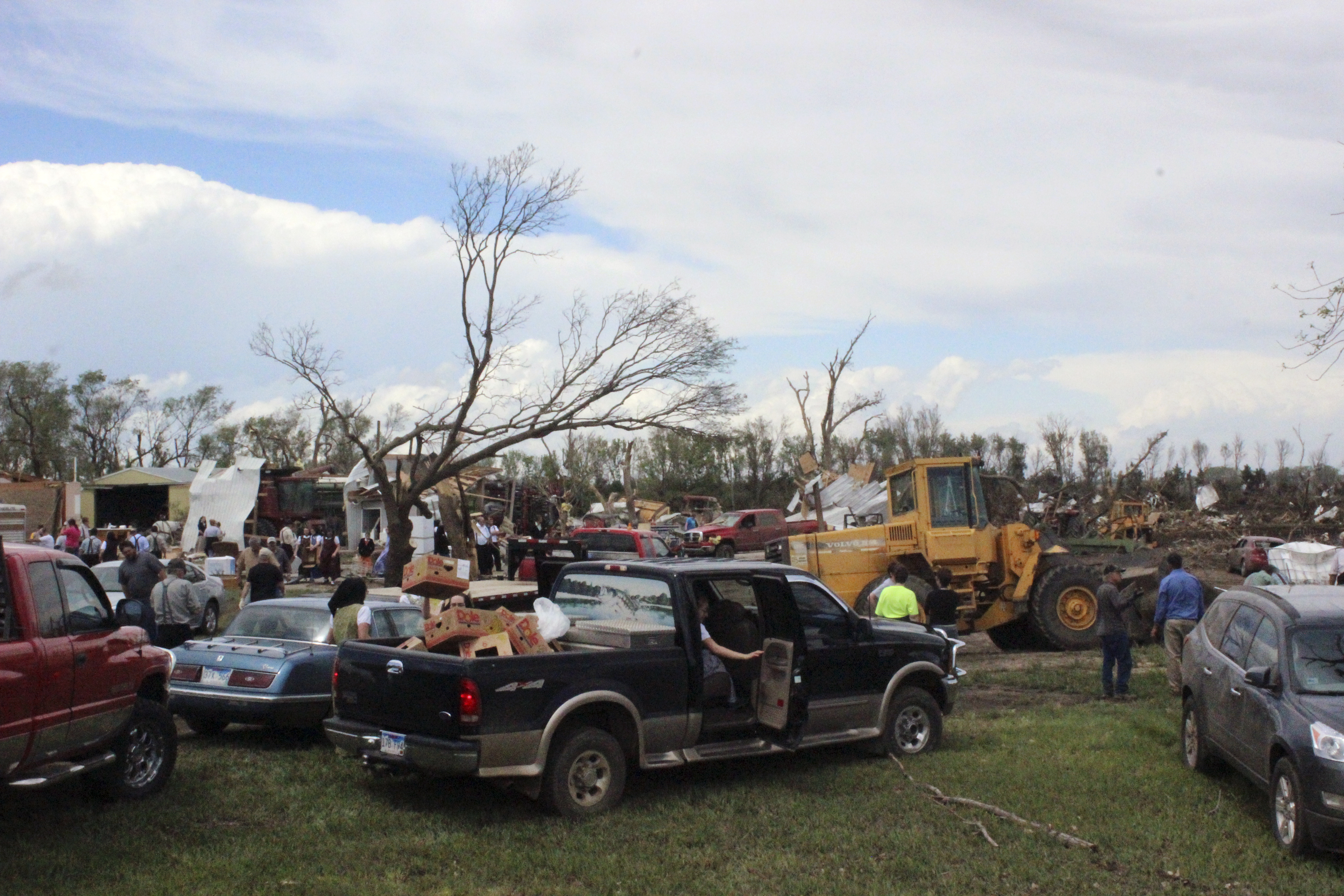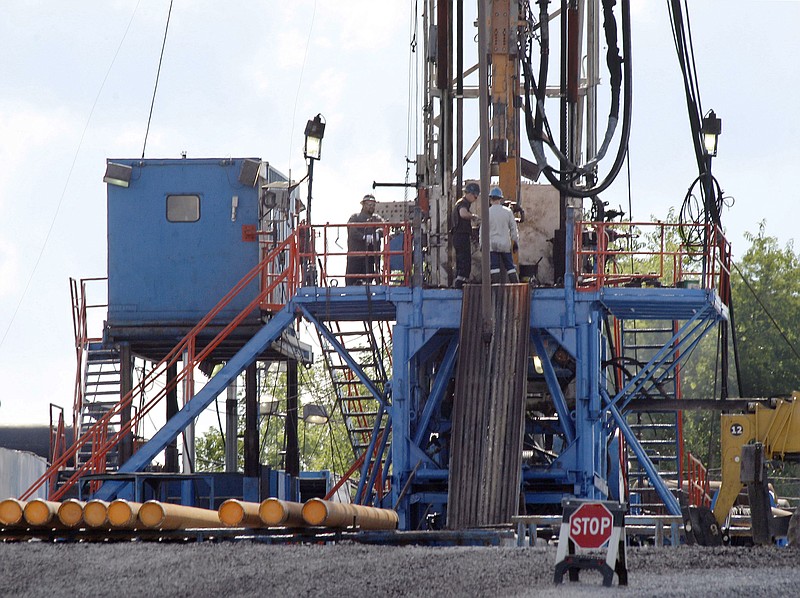Remember Newton's third law of motion?
"For every action, there is an equal and opposite reaction."
It's true in physics, true in the environment, true in politics, true in life.
We just try, more often than not, to ignore physics lessons and what history shows us about the repercussions of our actions.
Take the weather, for example.
This was quite the weekend, weatherwise.
 People gather on the beach to watch the big surf from Tropical Storm Ana in Wrightsville Beach, N.C. Saturday, May 9, 2015. Beachgoers were warned away, emergency officials kept a watchful eye and at least one graduation ceremony was forced indoors as Tropical Storm Ana plodded toward the Carolinas on Saturday in an early heaping of rough weather weeks ahead of the official start of the Atlantic hurricane season. (Matt Born/The Star-News via AP)
People gather on the beach to watch the big surf from Tropical Storm Ana in Wrightsville Beach, N.C. Saturday, May 9, 2015. Beachgoers were warned away, emergency officials kept a watchful eye and at least one graduation ceremony was forced indoors as Tropical Storm Ana plodded toward the Carolinas on Saturday in an early heaping of rough weather weeks ahead of the official start of the Atlantic hurricane season. (Matt Born/The Star-News via AP)  Dozens of people gather to help with cleanup efforts at a farm that was severely damaged by a tornado Sunday, May 10, 2015, in Delmont, S.D. South Dakota was the center of weather extremes Sunday, with a tornado hitting the small town on the eastern side of the state and more than a foot of snow blanketing the Black Hills to the west. (AP Photo/Regina Garcia Cano)
Dozens of people gather to help with cleanup efforts at a farm that was severely damaged by a tornado Sunday, May 10, 2015, in Delmont, S.D. South Dakota was the center of weather extremes Sunday, with a tornado hitting the small town on the eastern side of the state and more than a foot of snow blanketing the Black Hills to the west. (AP Photo/Regina Garcia Cano)
The strongest tropical storm ever to make landfall in the United States so early in the year hit our east coast, zeroing in on South Carolina. Across the continent on the other end of country, a blizzard -- yes, a blizzard, pounded South Dakota. In between those two extremes, scores of deadly tornadoes raked the Plains and Midwest from South Dakota to Texas. And in the tornadoes' wakes came devastating flash floods.
Meanwhile out in the Pacific, a Category 5 Super Typhoon Noul hit the Philippines. Again, May 10 is exceptionally early to be getting a Category 5 storm, let alone one that makes a landfall at such major strength. But get this: Super Typhoon Noul is the second Category Five storm this year in the Northwest Pacific and the fourth overall on Earth in 2015, according to Jeff Masters, co-founder of Weather Underground.
These extremes exemplify scientists' expectations of climate change. We've warmed our planet with increasingly high concentrations of carbon dioxide, primarily with the burning of fossil fuels. We burn coal and gas, we release excess carbon. Our atmosphere traps the heat and the climate warms. As it does, weather extremes ensue. Action and reaction.
But every good ecologist and environmentalist will also tout another law of motion, though they refer to it as the First Law of Ecology.
"Everything is connected to everything else."
Example: More people on earth means more energy needed and more houses built and more cars driven, which in turn mean more oil usage, more logging, less open space, less animal habitat and ultimately more carbon pollution in the air.
And how does this play politically speaking? Well, Thomas Sowell penned another good "rule" that has been dubbed Sowell's Law: "In human problems, there are no solutions, only trade-offs."
That fairly sums up the connections, actions and reactions of weather, fossil fuel use, oil exploration and trying to band-aid U.S. foreign policy.
And it likely sums up at least a portion of the Obama administration's thinking in its conditional approval Monday for Shell Oil to resume drilling for oil and gas in the Arctic Ocean's Chukchi seas this summer. The decision is a slap to environmentalists, who are thinking only about Earth's web of life, not necessarily the globe's web of life.
From June 2014 until late January 2015, the cost of gasoline in the U.S. dropped by more than 50 percent. For the average American that translated to a tax cut of about $1,000 a year. The great windfall for us was due, in part, by U.S. oil producers upping production, largely by hydraulic fracturing, called fracking.
Forget fracking's water and carbon pollution for a moment and think politically: The high cost of U.S. oil production and low price of gasoline is infringing on oil company profits. Action and reaction.
And don't forget that globalization thing. You know -- the politics version of everything is connected.
The world's large oil-exporting countries, especially Nigeria, Venezuela and Russia, are hurting because they were built on the high price of oil. Oil and gas make up more than half of Russia's budget. Cheap oil, combined with sanctions over Russia's actions in Ukraine, has sent the Russian ruble into a dive.
OPEC figures in this, too. The rich OPEC countries of Saudi Arabia, Qatar and the United Arab Emirates have had the wealth to play a global oil-supply waiting game, thinking they could wait out the low oil prices in the U.S.
On the other hand, the U.S. -- and particularly the Obama administration -- needs more leverage in both the Middle East and Russia. That would be the no-solutions-only-trade-offs meme.
Environmentalists say a drilling accident in the icy and treacherous Arctic waters could have far more devastating consequences than the deadly Gulf of Mexico oil spill of 2010, when an oil rig explosion killed 11 men and sent millions of barrels of oil spewing into the water for 87 days.
On the other hand, there's the rest of our multiplying world problems.
